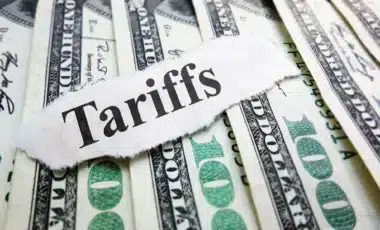Eight money and cost of living adjustments that will affect bank accounts. New changes go into effect this month, affecting Department for Work and Pensions (DWP) claimants, Universal Credit beneficiaries, and many others.
Probate Fees Increased
Probate expenses will be increased by 10% to £300, as families wait nearly three months on average for this important step to be completed following a bereavement. In recent months, the average application time has been relatively stable at 13.7 weeks.
“It’s a bit of a lottery how long any particular application now takes before probate is granted,” explains Jo Summers, a spokesman for the STEP inheritance professionals’ association, who presented evidence and ideas for reforms to MPs at a recent session.
“More complex applications, particularly those done on paper, definitely take longer than the simpler digital applications. However, you can also send two similar applications at the same time and one takes far longer than the other. ‘There is no certain answer we can give people when they ask us how long the process will take.”
The Due Date of Benefit Payment Has Changed
This time around, the early May bank holiday comes on Monday, May 6, while the late May bank holiday occurs on Monday, May 27. Payments due on May 6 should be deposited into bank accounts on Friday, May 3, while those due on May 27 are expected to arrive on Friday, May 24.
Natwest Will Start Closing Buy Now, Pay Later Accounts
According to The Sun, the bank, which has more than 18 million customers, will begin cancelling BNPL customers’ accounts on May 7 of this year. The decision was taken due to lower-than-expected usage of the offering, which was initially released with considerable excitement.
A NatWest spokesperson told Finextra: “We are focusing on our core lending products, helping customers spread the cost of their purchases through our credit cards, overdrafts and loans. This means our Buy Now Pay Later proposition will be closing.”
Interest Rate Decision
Inflation is beginning to stabilise, but it remains higher than the government’s 2% goal. In March, the Consumer Price Index (CPI) was 3.2%, down from a high of 11.1% in October 2022.
The Bank of England is expected to decrease the base rate this year as inflation slows; but, markets have recently moved to price in a “higher for longer” scenario.
The Bank of England’s Monetary Policy Committee gathers eight times per year to set the base rate. This occurs generally every six weeks. The upcoming meeting is on May 9.
Applications for Extra Childcare Support are Now Available
If your child is two years old, you may be eligible for 15 hours of free daycare each week for 38 weeks of the year (during school terms). If you work, you will be able to get 15 hours of free childcare for your kid starting at the age of nine months in September 2024. You can apply starting on May 12.
If your child is three to four years old, you may be eligible for 30 hours of free daycare each week for 38 weeks of the year (during school terms). You may be able to receive free daycare for up to 52 weeks per year by working shorter shifts over more weeks.
Changes in the Universal Credit Earnings Threshold
The Government has proposed amendments to Regulation 99 (6) of the Universal Credit Regulations 2013 to increase the Administrative Earnings Threshold level to £892 for single claimants and £1437 for couples in Great Britain beginning May 13, 2024.
Santander to Slash Interest Rates.
Santander plans to reduce the rate on its popular 5.2% easy-access saver. Santander is lowering the rate on its renowned easy-access savings account from 5.2% to 4.2% on May 20, 2024. The rate drop relates to Santander’s ‘Easy Access Saver Limited Edition (Issue 3)’, which is currently unavailable to new customers.
Energy Price Cap Announcement
The upcoming quarterly price cap announcement will be on May 28, 2024, and will cover what energy suppliers can charge from July 1 to September 30, 2024. According to energy firm Cornwall Insight, the Ofgem energy price ceiling is expected to decrease again in July.
The business, which properly forecast increases to the quota throughout the energy crisis, anticipates the cap to fall by 7.7% (£130) following May’s announcement. The annual figure is expected to be £1,560. It then expects the cap to climb by 4.5% (£71) in October.









